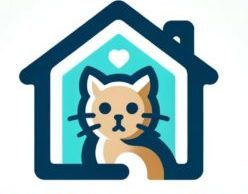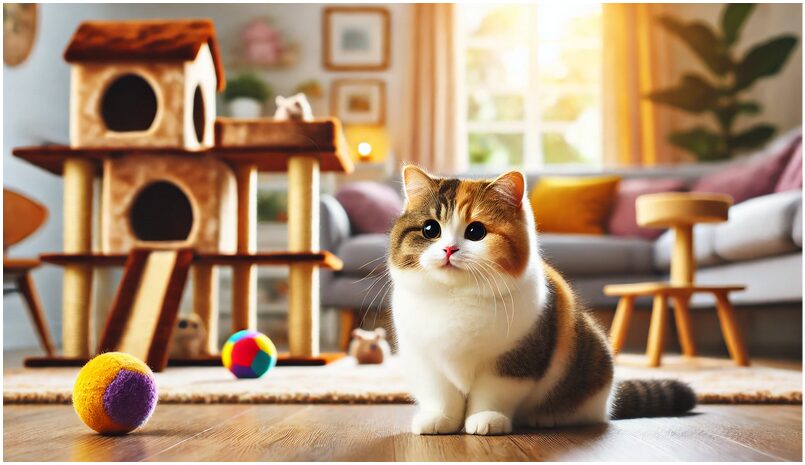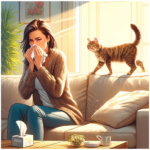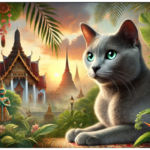The Munchkin cat is a relatively new breed that has captured the hearts of cat lovers worldwide. Known for their distinctive short legs and playful personalities, these cats are undeniably adorable. But there’s much more to Munchkin cats than their appearance. In this blog post, we’ll explore their origins, unique characteristics, health considerations, suitable households, and what you should know if you’re considering adopting a Munchkin cat.
Origins and History
The Munchkin cat breed was officially recognized in the early 1990s, but short-legged cats have been around for much longer. Evidence of these cats appears as early as the 1930s in England, but the breed itself didn’t gain traction until much later. The modern Munchkin cat traces its origins back to the 1980s when a schoolteacher in Louisiana found two short-legged stray cats, one of which became pregnant. Some of the kittens were born with the same short legs, and from this litter, the breed began to develop. In 1994, The International Cat Association (TICA) recognized Munchkins as an official breed, although the decision was controversial, with some opposing the breed due to potential health concerns.
Physical Characteristics
The most defining feature of Munchkin cats is, of course, their short legs. This trait results from a natural genetic mutation that affects the length of the leg bones, giving them a dwarf-like appearance. Despite their short stature, Munchkins are fast, agile, and can jump surprisingly well, though not as high as cats with standard leg leng
Munchkins come in a variety of coat colors and patterns, and their fur can be short or long, with long-haired Munchkins often having a silky, flowing coat. Their bodies are medium-sized, and their overall appearance is compact and balanced, making them look even more endearing.
Personality and Temperament
Munchkin cats are known for their outgoing, affectionate, and playful personalities. They are intelligent and curious, often engaging with toys or exploring their surroundings with enthusiasm. These cats love to be around people and tend to form strong bonds with their owners. They’re also known to get along well with children, other cats, and even dogs, making them a good fit for families or multi-pet households. Despite their unique appearance, Munchkin cats are just as capable of playing, climbing, and running as any other cat.
They’re sometimes described as “kitten-like” throughout their lives, retaining a playful and energetic demeanor well into adulthood. Munchkins are not prone to aggressive behavior and are generally very sociable, making them excellent companions for both first-time and experienced cat owners.
Health Considerations
The primary concern with Munchkin cats is the potential for health issues related to their short legs. The gene responsible for their short stature is similar to the one causing dwarfism in dogs, and there has been debate among veterinarians and breeders about the long-term impact of this mutation on their health. Specifically, some worry that their spinal and limb development could lead to problems like lordosis (a curvature of the spine) or arthritis as they age.
However, many Munchkin owners report that their cats live healthy, normal lives without any significant mobility issues. Responsible breeders aim to mitigate health risks by maintaining strict breeding standards and avoiding over-breeding for extreme traits. As with all cats, regular veterinary check-ups are essential to ensure that Munchkins remain healthy throughout their lives.
Munchkins typically have a lifespan of 12 to 15 years, which is on par with most domestic cats. They are generally a healthy breed, but it’s important to adopt from a reputable breeder who can provide health screenings for common feline ailments.
Living with Munchkin Cats
Munchkin cats are highly adaptable to different living environments, whether it’s a large house or a cozy apartment. Their playful nature means they enjoy having toys, scratching posts, and places to climb or hide. Despite their short legs, they still love to play and can chase toys with as much enthusiasm as any other cat.
One thing to note is that their shorter stature makes them less able to jump onto high surfaces, which can be both a blessing and a curse depending on your household. If you’re the type who wants to keep cats off countertops, Munchkins might be the perfect choice. However, they can easily find other ways to reach high places with a bit of creativity, like using furniture as stepping stones.
Who Should Adopt a Munchkin Cat?
Munchkin cats are ideal for individuals or families who are looking for an affectionate, playful, and sociable companion. Their relatively small size and moderate exercise needs make them well-suited for apartment living. They’re a good choice for families with children, as they enjoy interaction and are generally tolerant of being handled.
Munchkin cats are also great for people who want a cat with a unique appearance but a personality that’s not too far removed from the typical domestic shorthair. Their kitten-like demeanor makes them especially endearing, but potential owners should be aware of the health concerns associated with their short legs.
Caring for Munchkin Cats
Like all cats, Munchkins require proper nutrition, regular grooming, and plenty of mental and physical stimulation. Short-haired Munchkins are relatively low-maintenance when it comes to grooming, but long-haired varieties may need to be brushed a few times a week to prevent mats and tangles.
Regular playtime is important for keeping your Munchkin mentally stimulated and physically active. Interactive toys, puzzles, and fetch games are great for exercising both their body and mind.
Additionally, be mindful of their jumping limitations when setting up your home environment. Provide ramps or stairs to help them access higher surfaces without putting too much strain on their legs and spine.
Controversy Surrounding Munchkin Cats
The Munchkin breed has been at the center of controversy in the cat breeding world. Opponents argue that breeding for physical deformities, like short legs, is unethical and can lead to health problems for the animals. Some organizations, such as the Cat Fanciers’ Association (CFA), do not recognize the Munchkin as an official breed due to concerns over their welfare.
On the other hand, supporters of the breed argue that Munchkins, when responsibly bred, are healthy and happy cats with unique personalities. TICA officially recognizes Munchkin cats, and many owners report that their Munchkins live full and healthy lives without mobility issues or other significant problems.
Conclusion
Munchkin cats are undeniably adorable, with their short legs and playful personalities making them an appealing choice for cat lovers. While their genetic mutation raises some health concerns, responsible breeding and regular veterinary care can help ensure that these cats live long, happy lives. If you’re looking for a sociable, affectionate, and playful companion, a Munchkin cat might just be the perfect addition to your household. Just make sure to adopt from a responsible breeder. You can find listings of US and Canadian registered breeders on TICA’s Find A Breeder page.
How You Can Help
If you’re passionate about Munchkin cats and want to support responsible breeding and rescue efforts, consider donating to or volunteering with local cat rescues. These organizations often care for cats with unique needs, including those like Munchkins, and your support can make a difference in their lives.
Alternative To Consider
Looking for a tiny cat breed without all the health and ethical baggage? Check out our post on the world’s smallest domestic cat breed, The Singapura Cat Breed: Everthing You Need To Know







Thank you for another fantastic post.
Greetings from Carolina! I’m bored to tears at work so I decided to browse your site on my iphone during lunch break. I really like the information you present here and can’t wait to take a look when I get home. I’m shocked at how quick your blog loaded on my mobile .. I’m not even using WIFI, just 3G .. Anyhow, good site!
I’m not sure where you’re getting your info, but great topic. Thanks for the info I was looking for this.
You explained everything in this piece. Thanks a lot.
Hello there! I could have sworn I’ve been to this blog before but after checking through some of the post I realized it’s new to me.Anyways, I’m definitely glad I found it and I’ll be bookmarking and checking back frequently!
Aw, this was a very nice post. Taking the time and actual effort to create a great article… what can I say…
Nice post!
Have you ever thought about adding a little bit more than just your articles? I mean, what you say is valuable and everything. Nevertheless think about if you added some great pictures or video clips to give your posts more pop. Your content is excellent but with pics and videos, this site could certainly be one of the best in its niche. Terrific blog!
Hello, I enjoy reading through your article. I wanted to write a little comment to support you.
I am actually pleased to read this blog posts which contains lots of useful facts, thanks for providing this information.